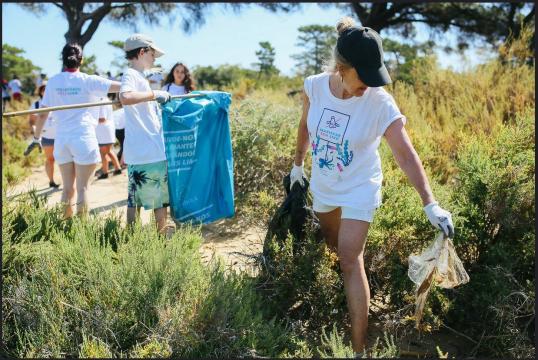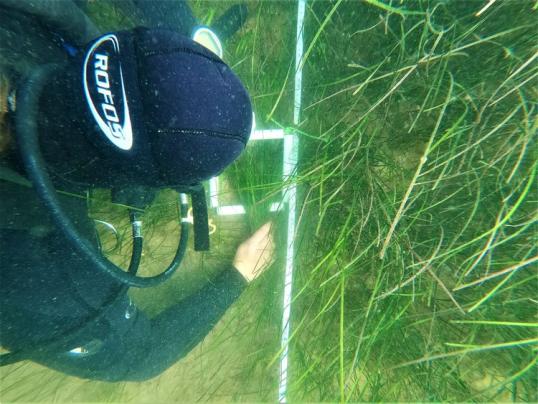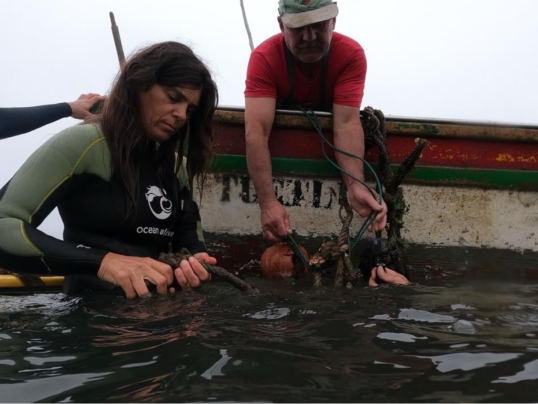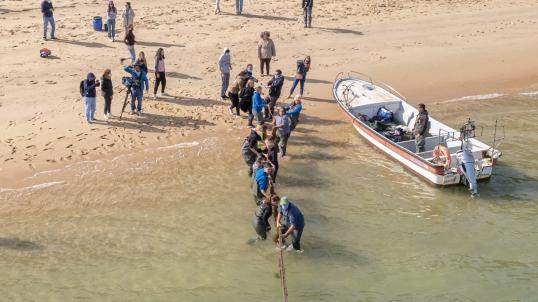
About the winner
| Lead applicants | Ocean Alive |
| Category | Marine conservation |
| Countries involved | Portugal |
| Main Natura 2000 sites | Estuário do Sado (Portugal) |
| Website | https://www.ocean-alive.org/pradaria-marinha-soltroia |
Overview
Seagrass meadows and salt marshes are among the most valuable coastal habitats and provide multiple ecosystem services, including coastal protection and carbon sequestration. However, their condition is continually declining at a global level. In the Sado Estuary, in Portugal, the decline of seagrass meadows has been caused by inappropriate navigation and anchoring practices, and has led to a scarcity of marine life, and contributed to the unemployment and devaluation of the local fishing community.
The Portuguese NGO Ocean Alive has developed a series of conservation and restoration initiatives targeting six seagrass meadows and salt marshes habitat types in the Natura 2000 ‘Estuário do Sado’ site. Ocean Alive promoted behavioural change in key actors, by actively and collaboratively engaging the local fishing community, decision-makers and scientists in achieving habitat preservation.
Using funds from corporate financing and donations, their approach has included:
- The conservation and restoration of Soltróia and Base-ferry seagrass meadows, by tackling anchoring practices as the main causes of degradation; and
- The improvement of the conservation status of the habitats by tackling marine litter pollution in Caldeira and Carrasqueira, within the Natura 2000 site.
The local community was involved in the installation of mooring floats, and in the supply of the floats, made from discarded materials from purse seine fishing gear, as a means of recycling marine litter.
Collectively, these actions have achieved significant progress towards improving the conservation status of these “blue forests”. In total, over 20 ha were restored, and over 25,000 kg of marine waste (plastic, glass, metal, fishing gear and lead) were removed.
Beyond these direct impacts on marine habitats, Ocean Alive also promoted an innovative approach: the active involvement of local fisherwomen in the mapping of seagrass meadows. The fisherwomen were instructed in the use of GPS technology and assessments, as part of a strategy to create new professions for local fisherwomen by valuing their wisdom and life history, and providing them with a complementary income to fishing.
Ocean Alive is making efforts to secure financing to continue this work in the future, and plans to replicate the creation of new professions for local fisherwomen in Ria de Aveiro (Portugal).
Pictures from the winner
Videos from the winner:
https://www.youtube.com/watch?v=O5t7-bVLNVQ
Details
- Publication date
- 31 January 2024
- Author
- Directorate-General for Environment





